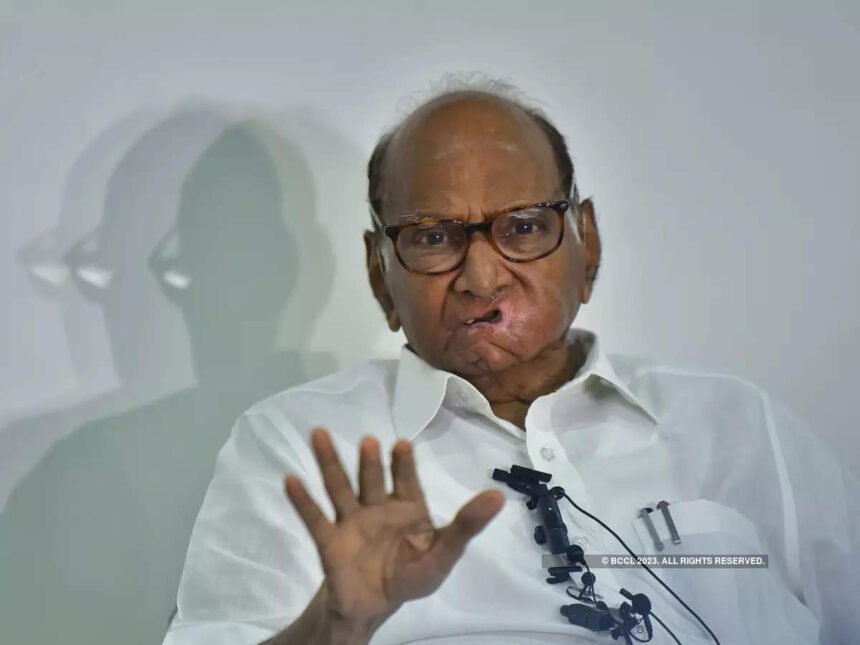Congress leader Rahul Gandhi visited the residence of Nationalist Congress Party (NCP) president Sharad Pawar on Thursday, displaying solidarity with the veteran leader amidst a rebellion within his party. The meeting took place soon after Pawar addressed the media following a working committee meeting of his party. Gandhi made his way to 6, Janpath, the official residence of the NCP stalwart.
During the media briefing, Sharad Pawar confidently reiterated his position as the president of the NCP, dispelling any doubts or speculation about his leadership. His assertion came in the wake of a brewing internal dissent within the party, which likely prompted Rahul Gandhi’s visit as a gesture of support and unity.
The meeting between Gandhi and Pawar holds significant political implications, as both leaders belong to prominent opposition parties in India. The Congress and NCP have been known to forge alliances in the past, especially during elections. Therefore, Gandhi’s visit can be interpreted as an effort to solidify the alliance and demonstrate solidarity during a time of internal turmoil.
While the exact details of their discussion remain undisclosed, it is expected that they deliberated on the current political landscape and strategized ways to navigate the challenges faced by their respective parties. Gandhi’s visit could also be viewed as an attempt to bridge the gap and strengthen the relationship between the Congress and NCP, further cementing the potential for future collaborations.
Sharad Pawar, a seasoned politician and former Union Minister, has been a key figure in Indian politics for several decades. His leadership and strategic acumen have played a crucial role in the NCP’s growth and prominence in Maharashtra and beyond. Rahul Gandhi’s visit to his residence underscores the significance of Pawar’s political stature and the value he holds in the opposition landscape.
The rebellion within the NCP, which likely prompted Gandhi’s show of support, is indicative of the challenges faced by political parties in maintaining internal cohesion. Dissent and factionalism are not uncommon in politics, and addressing such issues is crucial for the stability and longevity of any political organization. Gandhi’s presence at Pawar’s residence sends a message of unity and resolve, aiming to quell any discord and reaffirm the NCP’s leadership.
As the media speculates about the potential ramifications of this meeting, it is essential to recognize that political alliances and realignments are not uncommon in the ever-evolving landscape of Indian politics. Leaders frequently engage in dialogue and collaboration to navigate the complexities of their respective parties and the broader political sphere.
Rahul Gandhi’s visit to Sharad Pawar’s residence signifies a show of support and solidarity amid an internal rebellion within the NCP. The meeting carries significant political implications, demonstrating the importance of unity and collaboration among opposition parties. While the specific details of their discussion remain undisclosed, their engagement underlines the efforts to strengthen the Congress-NCP alliance and address the challenges faced by their respective parties. As political dynamics continue to evolve, such interactions will play a crucial role in shaping the future of Indian politics.




